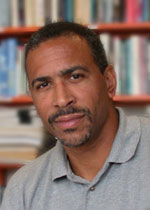Supporting African American Male Achievement
 AVID Center
AVID Center  Friday, April 4, 2014 at 10:13AM
Friday, April 4, 2014 at 10:13AM by Dr. Pedro Noguera, Peter L. Agnew Professor of Education, New York University

We asked Dr. Pedro Noguera to help us consider AVID’s role in helping our communities and schools support African American male achievement. See Dr. Noguera’s speech at the 2013 AVID Urban Leaders Convening and read his blog below. AVID would like to thank Dr. Noguera for his leadership, advocacy, and insights.
Many of the strategies that are effective in supporting students who require extra support will also benefit African American male students. For example, participating in high-quality afterschool programs, developing systems to personalize learning, and using early intervention to address the learning needs of struggling students before they fall behind are just a few examples of strategies that can be highly effective. However, unless there is a deliberate effort to make sure that African American male students are included and allowed to benefit from such efforts, and that the personnel hired to staff these programs have the ability to relate to African American males, such efforts will not be successful, and in many schools, they will be excluded.
This occurs because relationships between school staff and African American males are often strained, resulting in higher frequency of discipline referrals and greater likelihood that they will be placed in remedial classes or referred for special education. In several studies, African American males have reported that they don’t feel supported by their teachers. Conversely, when they are taught by teachers who form strong, caring relationships with them and hold high expectations, there is ample evidence that the academic performance of African American males is generally much higher.
Strains between teachers and students can be avoided when there is a willingness to openly discuss the issues that may make positive relationships between certain members of a school’s staff and its African American male students difficult to develop. Candid, non-defensive communication must occur among staff so that they will be less likely to blame children for their academic struggles and more willing to take shared responsibility for student outcomes (e.g., grades, test scores, discipline referrals, etc.). Communication must also include conversations with African American male students and their parents so that staff can learn about their perceptions and experiences, and incorporate these into school activities.
When open communication is missing, bias, low expectations, and fear are more likely to go unchecked and adversely affect the performance of African American male students. Lack of open communication also contributes to the creation of a climate where negative stereotypes will be prevalent. In schools where African American males are on sports teams, but missing from honors classes, they get the clear sense that athletics is more important than developing their intellectual potential. Let’s be clear: Breaking stereotypes is the responsibility of adults, not the children.
In a recently published book on schools that specialize in serving African American males (Schooling for Resilience: Improving the Life Trajectory of Black and Latino Boys, E. Fergus, P. Noguera, & M. Martin, 2014, Harvard Education Press), my colleagues and I identify strategies and tactics that contribute to academic and personal success. In addition to the three strategies mentioned above, we cite more general features of schools that succeed with males of color, including: a positive school culture, teaching practices that encourage active learning, and strong partnerships with parents. Again, such practices will not only benefit African American males; they can support all students. This is why the effort to address the needs of African American male students must never be carried out in isolation from broader school improvement efforts; the two go hand in hand.
Pedro Noguera is the Peter L. Agnew Professor of Education at New York University. Dr. Noguera is a sociologist whose scholarship and research focuses on the ways in which schools are influenced by social and economic conditions, as well as by demographic trends in local, regional, and global contexts. Dr. Noguera is the Executive Director of the Metropolitan Center for Research on Equity and the Transformation of Schools and the co-Director of the Institute for the Study of Globalization and Education in Metropolitan Settings (IGEMS).
An AVID ally, Dr. Noguera has spoken at several AVID Center events, including AVID National Conference, AVID’s Urban Leaders Convening, and AVID Center’s Board Retreat. He has also been featured in Access, AVID’s Educational Journal.
Reader Comments